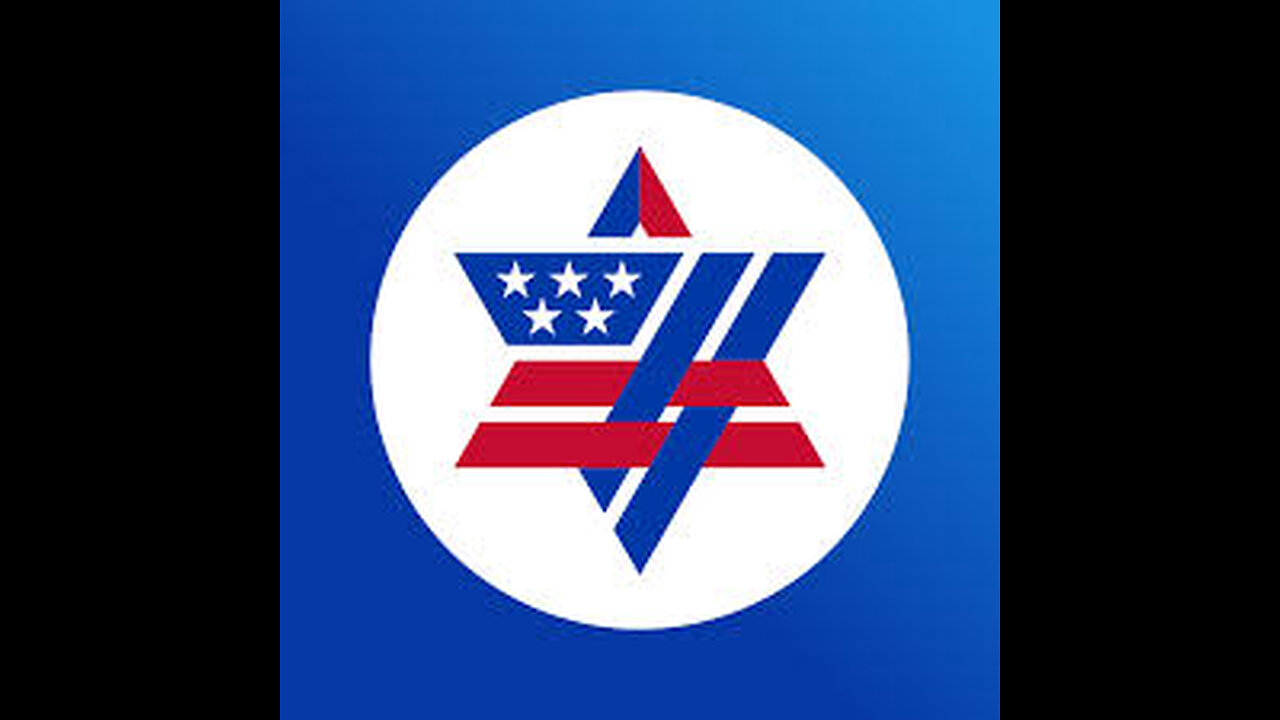Premium Only Content

Who Really Writes U.S. Foreign Policy? AIPAC, CAIR, and the Influence Game in Washington
Steps Needed to Make AIPAC and Similar Organizations Conform to FARA
1. Redefine “Agency” Under FARA
Current law defines a foreign agent as one acting “at the order, request, or under the direction or control” of a foreign principal.
This language—dating to 1938—is outdated for the modern influence ecosystem, where direct instruction is rarely documented.
Proposed fix:
Amend FARA to include entities that coordinate, consult, or receive material benefit from a foreign government, foreign political party, or state-linked enterprise.
Define “material benefit” to include shared data, travel sponsorships, legislative briefings, and donor targeting facilitated by foreign diplomatic staff.
Effect:
This closes the loophole AIPAC and others use—claiming independence because no written directive exists—while still protecting ordinary diaspora or cultural groups.
2. Establish a Foreign Influence Disclosure Tier
Rather than criminalizing advocacy, FARA could adopt a tiered compliance structure:
Tier 1: Direct foreign funding or direction → full FARA registration and reporting.
Tier 2: Indirect coordination, travel, or donor bundling on behalf of foreign policy positions → mandatory Foreign Policy Influence Disclosure (FPID) filing with DOJ.
Tier 3: Domestic advocacy without coordination → exempt but still subject to random audits.
Effect:
AIPAC, CAIR, and similar groups would fall under Tier 2—required to disclose relationships, funding sources, and lobbying expenditures when their activities clearly advance a foreign nation’s interests.
3. Mandate Financial Transparency for Foreign-Policy Nonprofits
Currently, 501(c)(4) and 501(c)(3) entities must report only limited donor data.
Reform measure:
Require annual public disclosure of any donation exceeding $5,000 originating from foreign nationals, overseas accounts, or dual-use advocacy organizations.
Mandate forensic accounting audits for nonprofits spending more than $5 million annually on foreign-policy lobbying.
Effect:
This would bring to light donor pipelines linking foreign governments, domestic front groups, and Super PAC networks—without banning lawful advocacy.
4. Create a FARA Enforcement Division within DOJ
The FARA Registration Unit currently operates within the National Security Division with limited manpower.
Proposal:
Establish a dedicated Foreign Influence Oversight Division (FIOD) with independent subpoena power and its own Inspector General.
Require semiannual public reports to Congress detailing compliance status of high-impact organizations.
Effect:
This would depoliticize enforcement, allowing investigations of AIPAC, CAIR, or Chinese-funded cultural institutes to proceed without accusations of bias.
5. Condition Access to Federal Institutions on Disclosure Compliance
Organizations conducting lobbying or educational programs in Congress, the Pentagon, or federal agencies must first certify compliance with FARA or FPID filings.
Implementation:
Congressional Ethics Committees could maintain a “Verified Lobbyist Registry” accessible to all members and staff.
Non-registered entities would lose eligibility for congressional travel sponsorships or staff briefings.
Effect:
Creates immediate incentives for compliance: no FARA disclosure, no access.
6. Impose Penalties for Non-Compliance
Current penalties under FARA (five years imprisonment or $10,000 fine) are rarely enforced.
Proposal:
Institute civil fines indexed to the organization’s annual lobbying expenditures (e.g., up to 200% of undeclared foreign-influence spending).
Permit suspension of tax-exempt status after repeated non-compliance.
Authorize DOJ to petition for dissolution of entities proven to operate as undeclared agents of foreign states.
Effect:
Makes the cost of deception greater than the benefit of opacity—without infringing constitutional rights.
7. Strengthen Congressional Oversight
Require the House Judiciary and Senate Foreign Relations Committees to hold annual Foreign Influence Review Hearings with subpoena power over major lobbying entities.
Establish a bipartisan legislative advisory panel of former inspectors general to review compliance cases before public release.
Effect:
Provides a transparent, non-partisan mechanism for examining groups like AIPAC or CAIR without weaponizing the issue politically.
8. Encourage Reciprocal Accountability
Introduce a reciprocity clause in all bilateral aid or cultural agreements: if a U.S. NGO must register under FARA to operate abroad, the corresponding foreign lobby must register in the U.S.
Effect:
Restores parity in influence relationships and ensures equal treatment of U.S. and foreign interests.
-
 16:33
16:33
DYSTOPIA USA
5 days agoDIGITAL FEUDALISM. A "CALL TO ARMS" AGAINST AI
23 -
 2:01:08
2:01:08
LFA TV
1 day agoTHE RUMBLE RUNDOWN LIVE @9AM EST
142K11 -
 1:28:14
1:28:14
On Call with Dr. Mary Talley Bowden
5 hours agoI came for my wife.
21.3K23 -
 1:06:36
1:06:36
Wendy Bell Radio
10 hours agoPet Talk With The Pet Doc
59.6K28 -
 30:58
30:58
SouthernbelleReacts
2 days ago $7.50 earnedWe Didn’t Expect That Ending… ‘Welcome to Derry’ S1 E1 Reaction
38.7K10 -
 13:51
13:51
True Crime | Unsolved Cases | Mysterious Stories
5 days ago $17.84 earned7 Real Life Heroes Caught on Camera (Remastered Audio)
56.6K11 -
 LIVE
LIVE
Total Horse Channel
16 hours ago2025 IRCHA Derby & Horse Show - November 1st
116 watching -
 4:19
4:19
PistonPop-TV
6 days ago $7.81 earnedThe 4E-FTE: Toyota’s Smallest Turbo Monster
44.8K1 -
 43:07
43:07
WanderingWithWine
6 days ago $4.78 earned5 Dreamy Italian Houses You Can Own Now! Homes for Sale in Italy
32.9K9 -
 LIVE
LIVE
Spartan
1 day agoFirst playthrough of First Berserker Khazan
101 watching